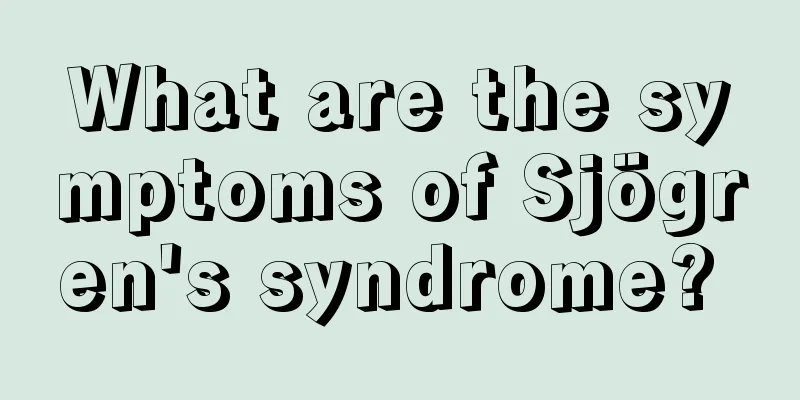Is microwave ablation good for treating liver cancer? Common knowledge about microwave ablation for treating liver cancer

|
Since the 1970s, liver cancer in my country has been on an upward trend. Currently, there are more than 347,000 new liver cancer patients each year. Liver cancer is the second most deadly malignant tumor in my country after lung cancer, accounting for 19.3% of the total number of cancer deaths each year. Since the human liver has no sensory nerves, malignant tumors grow in the liver in an insidious manner. Patients do not feel pain in the early stages, and only when the malignant tumor grows to a certain extent in the liver and involves the liver capsule and other organs do patients feel pain. At this time, the liver cancer of most patients has developed to the middle and late stages, and 80% of patients have lost the opportunity for surgical treatment. Microwave ablation is a minimally invasive surgery for treating tumors. When doctors perform microwave ablation on patients with liver cancer, under the guidance of CT images, the microwave antenna needle is passed through a tiny 2 mm pinhole in the patient's abdomen and directly punctured into the patient's liver tumor. Due to the effect of high-frequency electromagnetic waves, polar molecular substances such as charged particles and water molecules contained in liver tumors oscillate at high frequencies, rub against each other to generate heat, and reach a high temperature of 90 to 100 degrees Celsius, causing coagulative necrosis of tumor tissue in the ablation area, and the necrotic tumor tissue is gradually absorbed by the patient's body. Since the human liver tissue has a strong regenerative ability, the newly grown liver tissue will soon fill the space occupied by the original tumor. The characteristic of microwave ablation for liver cancer treatment is that the ablation time is short. For a single liver tumor less than 3 cm, the surgical ablation time is only about six minutes, which greatly reduces the patient's pain. When doctors treat liver cancer clinically, they can perform single-point, multi-point, multi-point superposition or multiple ablation treatments according to the size and number of the patient's tumor, and eventually make the tumor completely necrotic. Microwave ablation has certain indications, and not all patients are suitable for this method. Indications include inoperable liver cancer and patients who are not suitable for chemoembolization or have failed chemoembolization and ethanol treatment due to severe liver dysfunction or poor blood supply. Generally speaking, the ideal size of liver cancer for microwave ablation should be less than 3 cm in diameter and the number of tumors should be less than 4. For lesions with fibrous tissue or diaphragms, microwave ablation can also completely coagulate and necrotize the lesions by heating. Therefore, it is very effective for fibrotic liver cancer that is insensitive to ethanol ablation or chemoembolization. The mechanism, indications, advantages and contraindications of microwave ablation are similar to those of radiofrequency ablation. |
<<: Can drinking more milk prevent liver cancer? To prevent liver cancer, you must do these 3 things
Recommend
Nursing measures for breast cancer
After breast cancer surgery, postoperative care n...
Let’s take a look at the techniques for folding tofu block quilts
Folding a tofu-shaped quilt is a necessary skill ...
How to treat Jiuguikang rash
Pityriasis rosea is a relatively serious skin dis...
Adolescent girls have lumps in their breasts
Adolescent girls are just beginning to develop, a...
Do I need to wash my face before working out?
Many people have the habit of exercising regularl...
Do you always have dull pain in your lower abdomen recently?
Lower abdominal pain generally requires attention...
Is it harmful to remove armpit hair?
Almost everyone has armpit hair in life. Many wom...
What should you pay attention to in your diet after esophageal cancer surgery?
For patients with esophageal cancer, it is very i...
How to make your face plump without any flesh
Some people have very bony faces, which means the...
The neck above the collarbone hurts a little
Neck pain is often difficult to identify because ...
How to wash off the printing ink
A common problem for office staff is that when co...
Is tongue cancer prone to recurrence after treatment?
In real life, many people who pay attention to ma...
My face is badly swollen after dyeing my hair
With the development of the economy, people pay m...
How to control the condition of advanced laryngeal cancer
Cancer treatment has always been a major problem ...
How to tell whether fur is real or fake
Fur is generally made of animal skin. It not only...









